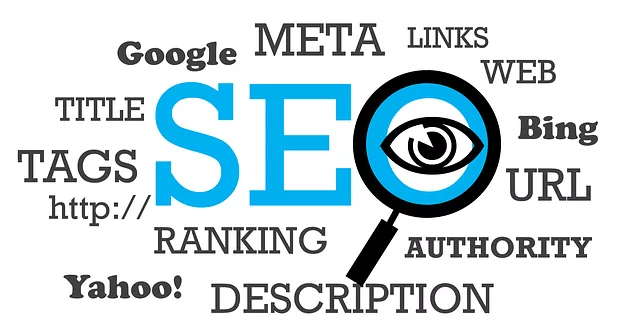A comprehensive SEO Bootcamp equips content creators with essential strategies for boosting online visibility. Participants learn to master on-page optimization, including keyword integration and high-quality meta tags, to enhance user experience and search engine understanding. Off-page SEO techniques, such as building high-quality backlinks from authoritative sources, further increase trust and credibility. Technical SEO ensures websites are crawlable, mobile-optimized, and load quickly, while content creation skills focus on keyword optimization and audience engagement. Performance analysis using tools like Google Analytics helps track rankings and user behavior. In today's digital era, the bootcamp also prepares creators for voice search trends, local SEO optimization, and adapting to evolving search engine algorithms.
“Unleash your website’s potential with our comprehensive SEO Bootcamp. This article serves as a holistic guide, taking you on a journey through every critical aspect of search engine optimization (SEO). From understanding the fundamentals—unraveling keyword strategies and search engine mechanics—to mastering advanced techniques like voice search optimization, we’ve got it covered. Learn how to optimize your website content, build reputable backlinks, ensure technical excellence, and create engaging, keyword-driven content. Get ready to transform your online presence with our SEO Bootcamp.”
Understanding SEO Basics: Keywords and Search Engine Functionality

In any SEO bootcamp, understanding the fundamentals is crucial. At its core, Search Engine Optimization (SEO) involves optimizing content to improve its visibility on search engine results pages (SERPs). The primary driver of this process is keywords—specific phrases or terms that users type into search engines like Google. These keywords are not just words; they represent user queries and intent. When creating SEO-friendly content, identifying the right keywords and strategically placing them within your text is essential.
Search engines, particularly Google, utilize complex algorithms to crawl, index, and rank web pages. They scan through countless sites to deliver the most relevant results to users’ queries. By understanding how search engines work, from crawling websites to interpreting user intent, content creators can tailor their material to align with these processes. This alignment ensures that valuable content reaches the right audience, ultimately driving organic traffic and boosting online visibility in the process.
On-Page Optimization: Optimizing Your Website Content

In an SEO Bootcamp, mastering on-page optimization is a foundational step for any website aiming to climb search engine ranks. This involves carefully crafting and structuring content that both captivates visitors and resonates with search engines like Google. Techniques include keyword integration, where strategic placement of relevant keywords improves search visibility without compromising readability. Additionally, creating high-quality meta tags, including titles and descriptions, enhances the user experience by providing clear context for each webpage.
On-page optimization also demands attention to other crucial elements such as header tags (H1, H2, etc.), internal linking, and image optimization. Proper utilization of these tools allows search engines to better understand your content’s hierarchy and relevance, ultimately improving your website’s performance in organic searches.
Off-Page SEO Strategies: Building Quality Backlinks

In an SEO Bootcamp, understanding off-page SEO strategies is paramount for optimizing your online visibility. Building quality backlinks acts as a vote of confidence from other websites to yours, signaling to search engines that your content is valuable and trustworthy. Achieving this involves crafting compelling content that naturally attracts links from relevant and authoritative sources. Engaging in activities like guest blogging, where you contribute high-quality articles to reputable platforms, can significantly boost your profile.
Additionally, leveraging social media platforms and influencer marketing allows for strategic link-building opportunities. By fostering relationships with influencers in your niche, you can encourage them to share or mention your content, thereby exposing it to a broader audience and potentially driving more backlinks. Remember, the key is to focus on acquiring links from sites that carry weight in their respective industries, ensuring your efforts contribute positively to your overall SEO strategy.
Technical SEO: Ensuring Your Site is Crawlable and User-Friendly

In an SEO bootcamp, one of the foundational aspects explored is Technical SEO—a crucial element in ensuring your site isn’t just visible to search engines but also user-friendly. This involves making sure your website is easily crawlable by search engine bots. A well-structured site architecture, XML sitemaps, and proper use of headings are key tactics to help search engines understand and index your content effectively.
Furthermore, optimizing for mobile devices and ensuring fast loading times significantly enhances user experience. With the majority of internet traffic now coming from mobile, it’s vital to have a responsive design that adapts to different screen sizes. Additionally, streamlining your site’s structure and improving internal linking can boost both crawlability and user navigation, making your website a more engaging and accessible resource.
Content Creation for SEO: Writing Engaging, Keyword-Rich Content

In an SEO Bootcamp, one of the core skills honed is content creation – crafting engaging pieces that not only captivate readers but also optimize search engine rankings. This involves a strategic approach to writing where keywords play a pivotal role. By integrating relevant, high-value keywords into your content, you enhance its visibility and relevance to target audiences and search engines alike.
Effective content creation for SEO requires a balance between keyword usage and natural language flow. It’s about weaving in keywords seamlessly, ensuring they appear in titles, headings, meta descriptions, and throughout the main body text. This process involves thorough research to identify the right keywords, understanding your audience, and staying updated with industry trends – all vital components of successful SEO content training.
Analyzing and Tracking SEO Performance: Using Analytics Tools

In the realm of SEO Content Training, one of the most pivotal skills to master is analyzing and tracking SEO performance. This involves utilizing robust analytics tools that provide insights into keyword rankings, organic traffic, and user behavior on your website. Tools like Google Analytics and Search Console offer a wealth of data, enabling you to understand which content resonates with your audience and what areas need improvement. By monitoring these metrics, you can make data-driven decisions to optimize your content strategy for better search engine visibility.
A key aspect of this process is regular auditing of your website’s performance using SEO Bootcamp techniques. This includes checking for technical issues like broken links, site speed, and mobile-friendliness that could hinder rankings. Additionally, keeping an eye on competitor analysis allows you to stay ahead in the digital landscape by identifying trends and gaps in content that your audience seeks.
Advanced SEO Techniques: Voice Search and Local SEO Optimization

In today’s digital landscape, staying ahead in search engine optimization (SEO) requires a strategic approach, especially with the evolution of user behavior. One such advanced technique that has gained significant traction is voice search. As more people adopt virtual assistants and hands-free devices, understanding how to optimize content for voice queries becomes paramount. A SEO Bootcamp should equip creators with the skills to craft content that resonates with this changing dynamic, focusing on natural language processing and long-tail keywords.
Local SEO optimization is another critical aspect often overlooked but can significantly impact businesses targeting specific geographic areas. By integrating location-based keywords, claiming local business listings, and encouraging customer reviews, brands can enhance their visibility in regional search results. This strategy ensures that when potential customers search for services or products within a certain radius, the business appears as a top result, fostering a stronger connection with its local audience.
